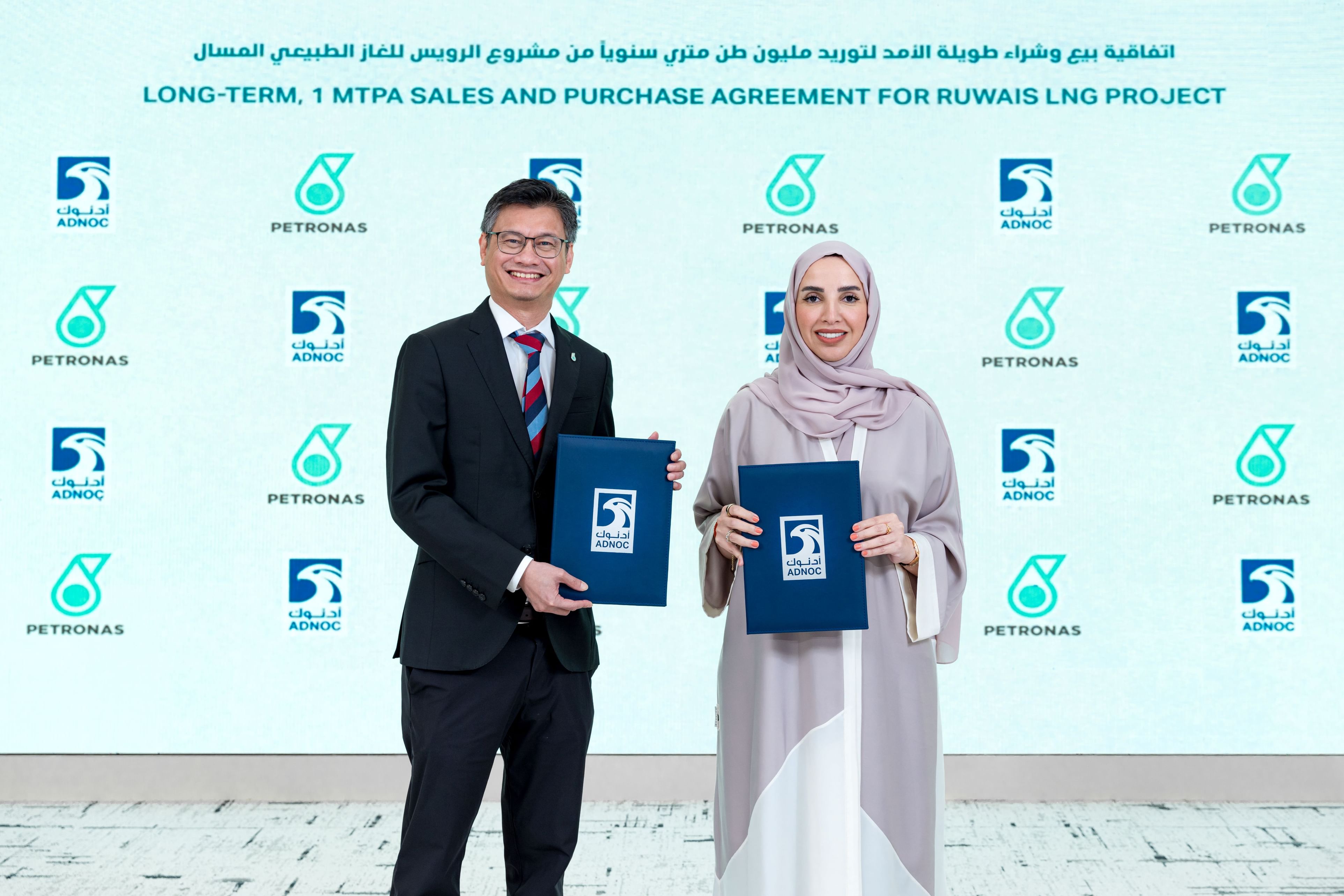Abu Dhabi, UAE — ADNOC has signed a second Sales and Purchase Agreement (SPA) for the lower-carbon Ruwais liquified natural gas (LNG) project, with Malaysia’s PETRONAS.
The 15-year SPA for supplying 1 million tons per annum (mtpa) of LNG converts a previous Heads of Agreement between ADNOC and PETRONAS into a definitive agreement.
The LNG will primarily be sourced from the Ruwais LNG project, which is currently under development in Al Ruwais Industrial City, Abu Dhabi. Deliveries are expected to start in 2028 upon commencement of its commercial operations. To date, over 8 mtpa of the project’s production capacity has been committed to international customers through long-term agreements.
Fatema Al Nuaimi, ADNOC Executive Vice President, Downstream Business Management, said, “Natural gas plays a critical role in meeting the world’s energy needs, and we are proud to partner with PETRONAS to deliver lower-carbon LNG through this landmark agreement. This milestone further underscores ADNOC’s role as a reliable global energy supplier and supports growing demand in Asia for cleaner, more sustainable energy solutions.”
ADNOC Gas announced in November 2024 that it expects to acquire ADNOC’s 60% stake in the Ruwais LNG project at cost, estimated at around $5 billion, in the second half of 2028. Upon completion, the project, comprising two 4.8 mtpa liquefaction trains with a combined capacity of 9.6 mtpa, will more than double ADNOC Gas’ existing operated LNG production capacity to around 15 mtpa.
Shamsairi Ibrahim, Vice President of LNG Marketing & Trading at PETRONAS, said: “This collaboration bolsters our LNG portfolio with a reliable supply of lower-carbon energy to meet Malaysia’s domestic demand, enhances security of supply for our customers, and fosters deeper government-to-government collaboration whilst enabling sustainable development and providing solutions for the energy transition that will enrich lives for a sustainable future.”
The Ruwais LNG plant will be the first LNG export facility in the Middle East and Africa region to run on clean power, making it one of the lowest carbon intensity LNG plants in the world. The facility will leverage artificial intelligence and the latest technologies to enhance safety, minimize emissions and drive efficiency.









